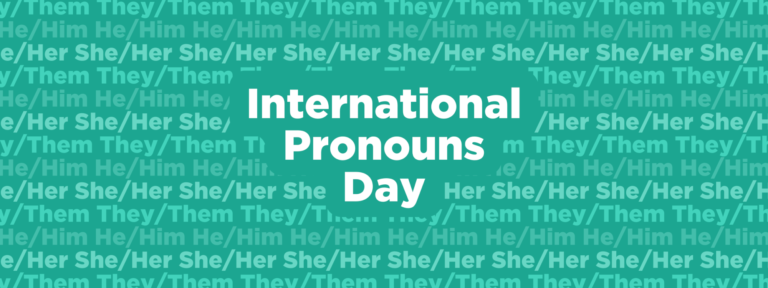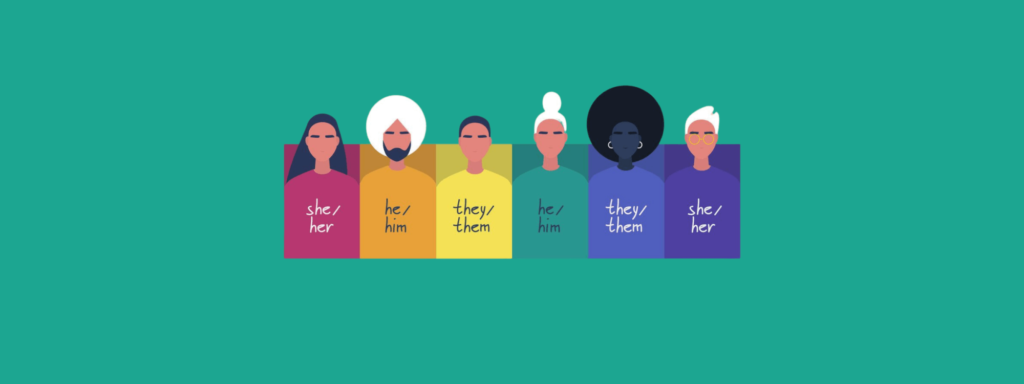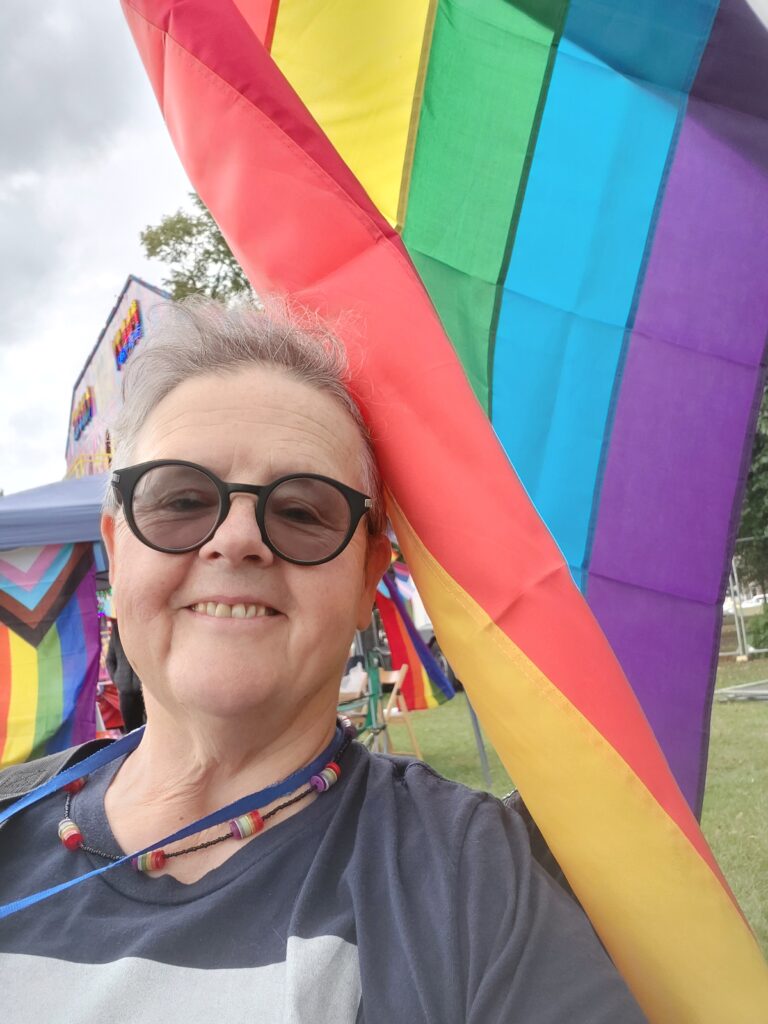| Equity & Diversity
International Pronouns Day: Learn about pronouns and why they matter

International Pronouns Day seeks to make respecting, sharing, and educating about personal pronouns commonplace. Referring to people by the pronouns they determine for themselves is basic to human dignity. Being referred to by the wrong pronouns particularly affects transgender and gender nonconforming people.
What are Pronouns?
According to Stonewall, pronouns are the words we use to refer to people’s gender in conversation – for example, ‘he’ or ‘she’. But not everyone identifies with the binary definitions of gender (male and female) so they may prefer gender-neutral pronouns such as ‘they/them’ or ‘ze/zir’. Everyone within our University Community deserves to be treated with dignity and respect and so understanding their pronouns is a simple gesture which has a big impact.
Someone’s pronouns are not always obvious, so we encourage staff and students to introduce themselves with theirs. By introducing yourself with your pronouns or including them on email signatures we help to create a more inclusive campus by not making assumptions of someone’s gender identity based on their appearance or name.
An extensive list of more English gender-neutral pronouns in use are available on the non-binary wiki.
Why should we share our pronouns?
From our newest student to our graduating class, we’re always working to include and engage everyone. One way you can do this is to share your pronouns, or the words you want to be called when people aren’t using your name. Like names, pronouns are an important part of how we identify that deserves to be respected. And we recognise that assuming someone’s gender can be hurtful, especially to members of our community who are transgender, genderqueer, or non-binary.
As a community, we are all learning together about the importance of pronouns and being better allies to the trans and non-binary community on campus. We hope that you’ll join us in striving for inclusion, justice and respect—because at the University, we welcome all.

Types of Pronouns:
He, him, his: These gendered pronouns are often used to refer to men, but not always.
- Tyler said he is going to Cleeve Hill for a walk.
- Robin told me that his favourite campus was Francis Close Hall.
- That pen belongs to him.
She, her, hers: These gendered pronouns are often used to refer to women, but not always.
- Terry called me to say that she is signing up for the LGBTQ+ Society.
- That bag is hers.
- We shouldn’t go to the meeting without her.
They, them, theirs: A non-gendered or all-gender pronoun. They/them may also be used when pronouns are unknown. This functions as both a singular and plural pronoun.
“They” was Meriam Webster’s dictionary 2019 word of the year, with a 313 percent increase in searches. The singular use of “they” dates from 1375!
- Taylor doesn’t want to go to the movie because they think it’ll be scary.
- Ahmed is studying abroad soon. I’m so excited for them!
- I wonder who left their jacket.
But isn’t ‘they’ a plural?
Not always. It can be used as a plural, but it applies to the singular as well and you have probably been using it that way all your life without realising. Mindline Trans+ explains that “We use they/them pronouns in everyday conversations, and many people don’t even realise. If you’ve just come across a wallet on the floor, most people would say ‘someone dropped their wallet’. Non-binary people use all kinds of pronouns. Many use they/them, she/her, he/him or a combination”.
In fact, using they/them as a singular is nothing new at all. You will find it used in texts such as The Canterbury Tales, Shakespeare’s Hamlet and even the United Nations Declaration on Human Rights.
What if my pronouns are being ignored?
Everyone in our University community deserves to be treated with dignity and respect and getting pronouns right is a way of showing respect to staff and students.
Consistently mis-gendering someone on purpose is not only disrespectful but could be regarded as a hate incident. If someone is repeatedly using the incorrect pronouns for you or behaving in an abusive, harmful or hateful way then you can report this incident here. University of Gloucestershire has a zero-tolerance approach to such behaviours and all allegations are taken seriously.
Don’t forget to follow us on Twitter @UoGEquality



